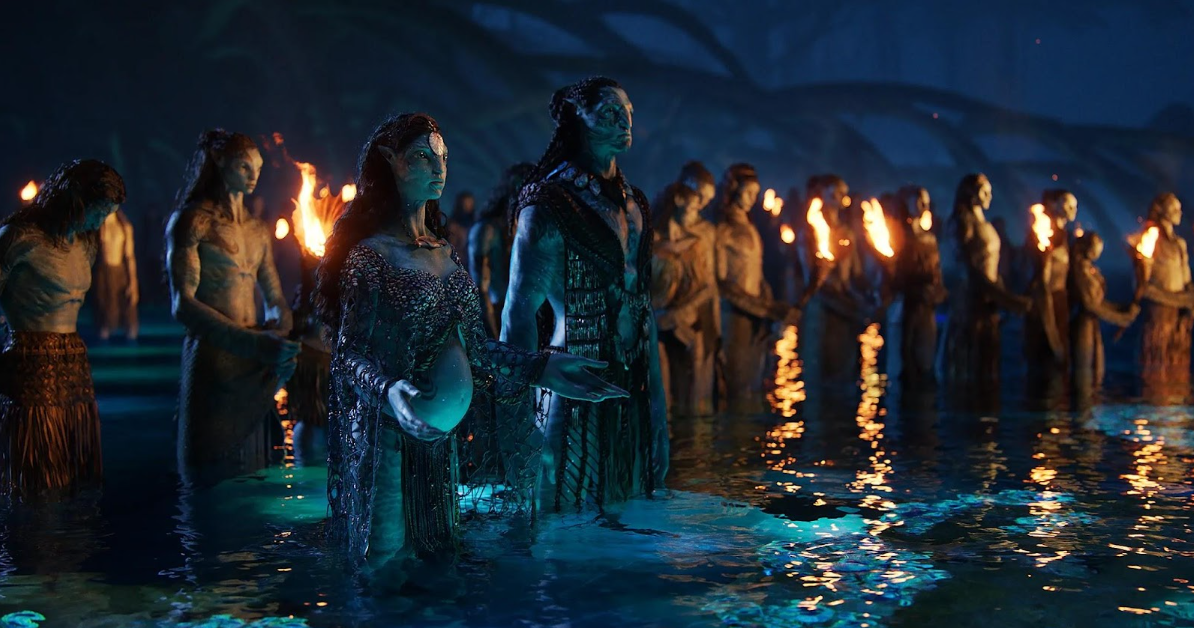The Na’vi believe that Eywa provides for all her children, who in turn provide for their clan, and ultimately Eywa herself. Each individual is born with an innate desire and ability to fulfill a specific role needed for the clan’s continued survival. The spiritual energy (one of the senses of the word syura) of the dead influences the natural inclinations of each new child so that the clan is constantly replenished.
The Na’vi embrace death as the agent of change and growth in the world. They say,
Frasyurati fkol zasrolìn nì’aw ulte trro zene teykivätxaw.
‘All energy is only borrowed, and one day it must be given back.’

Eywa teaches that death allows progress, as it creates new life that can adapt to a changing world. What humans call evolution, the Na’vi call becoming. Everything is on the path to becoming something else, as Eywa commands. This belief is reflected in the Na’vi’s pragmatic but respectful attitude towards hunting.
Na’vi funeral practices vary from clan to clan. For example, the Omatikaya ceremony includes a burial among tree roots. They honor the dead, and Eywa, with singing, and by placing an atokirina’ with the corpse. This reflects the wish for the soul to return to Eywa. Flowers and totems are also buried along with the body, as well as the individual’s waytelem after it has been sung.
The coast-dwelling Tayrangi choose to lay their dead in cliff nooks overlooking the waves. The bodies are consumed by small banshees, who, in turn, are consumed by the clan’s larger ikran. In this way, Eywa’s cyclical system of life is once again honored. The Metkayina lay their dead in the water of the Cove of Ancestors, where the bodies sink and are engulfed by anemone-like tendrils below. They then can commune with the spirits of the dead via Ranteng Utralti, the Spirit Tree. The Way of Water relates to the Metkayina attitude towards death.

